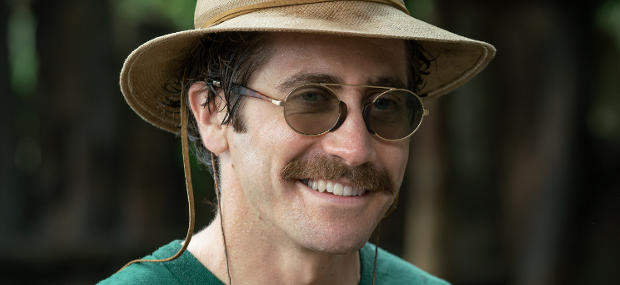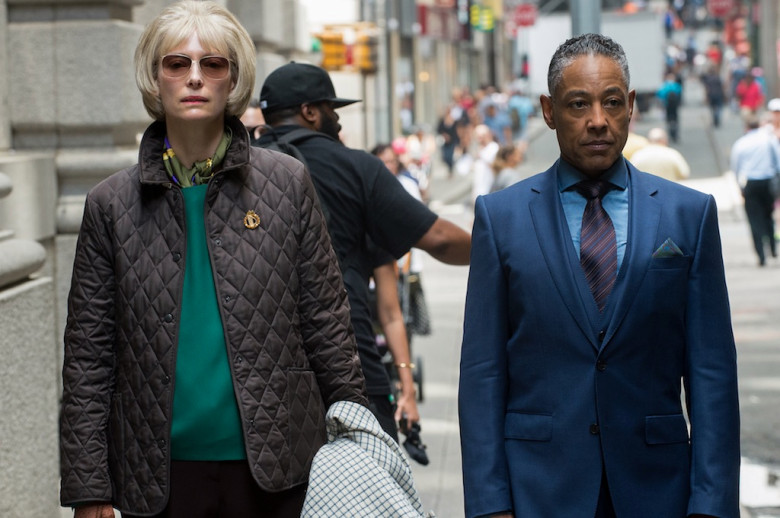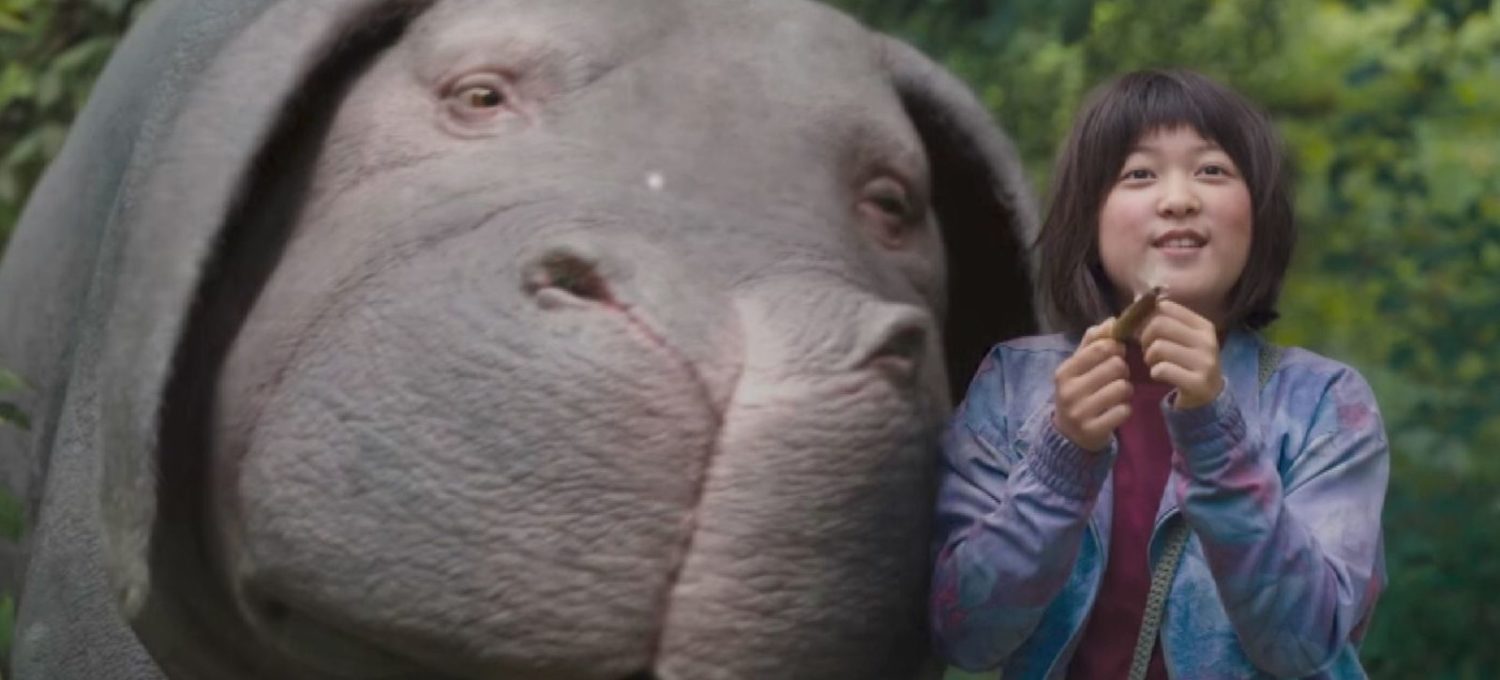Bong Joon Ho’s new film, Okja (in select theaters and streaming on Netflix today), features some of the heavy-handed political commentary laced with humor that worked so well in his previous film, Snowpiercer. This time, Bong turns his attention to factory farming—and the divisions of labor, capital, and politics that form around it—in what amounts to an updated Charlotte’s Web, with more action and fewer hallucinating rats.
The world of Okja isn’t far removed from our own. Both are plagued by a rising population and an impending global food crisis. In the midst of this, the Mirando (Monsanto?) Corporation, a multinational conglomerate, faces its own PR crisis. To help navigate the ethically murky waters, CEO Lucy Mirando (Tilda Swinton) takes over the family business and hides her father’s blatantly evil business practices behind a reality-TV competition. The Mirando Corporation has genetically engineered an “organic, non-GMO” pigs and shipped them to the most popular farmers around the world. In ten years, the farmer who has raised the best specimen will win the competition.

In the mountains outside Seoul, Mija (An Seo Hyun) and her grandfather care for their massive pig, Okja. Mija and Okja spend their days in lazy bliss, wandering around the hillside, eating fruit, and playing in nearby pools and streams. When Dr. Johnny Wilcox (Jake Gyllenhaal), the host of the reality series, shows up to take Okja back to New York for the conclusion of the competition, it unleashes a chain of events that puts Okja and Mija in the middle of a conflict between the Mirando Corporation and members of the radical Animal Liberation Front.

Okja succeeds because, at heart, it’s a “boy and his dog” story or, in this case, a girl and her pig. It benefits from a brilliant performance from Seo-Hyun, which holds up perfectly well against Swinton’s taken-for-granted talent. Gyllenhaal is as campy as he could possibly be, and it’s good to see the under-utilized (at least in film) Stephen Yuen as a conflicted member of the ALF. Of course, in a film like this, the special effects are always something of a high wire act, but, thankfully, they make Okja feel like less of a prop and more like a living, breathing creature, which is vital to land the film’s more emotional moments.
These moments make up for a rather black-and-white narrative that doesn’t demand too much reflection. The idyllic mountain-side farm and the innocence of youth are contrasted by the cold, mechanical, uncaring city and the black-hearted corporations that call them home. Thankfully, Bong isn’t afraid to poke fun at the animal rights’ activists, but we know which side he ultimately falls on as a post-credit sequence hints at more work on their part. Okja will certainly make you think twice about where your food comes from, but, in the end, it may not be enough to turn you into a vegetarian.
Okja (118 mins.) is currently streaming on Netflix.
